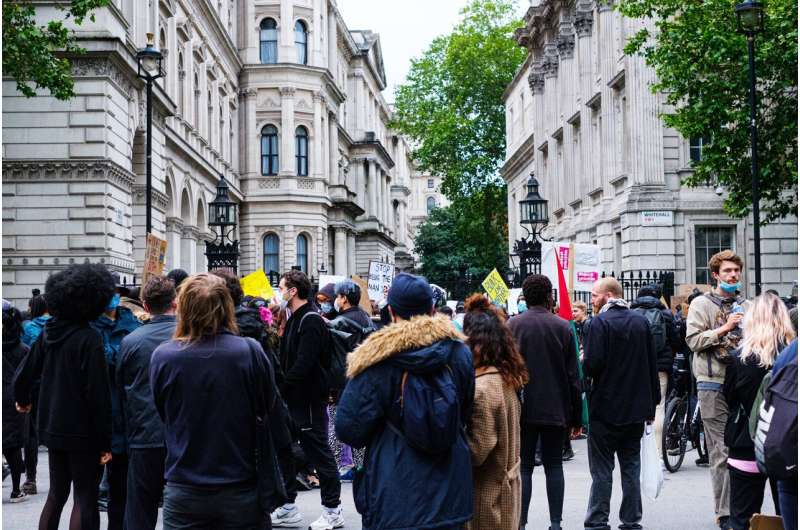Racial attitudes in a community affect COVID-19 numbers

Implicit racial attitudes within a community can effectively explain racial disparities seen in rates of COVID-19 in the United States, according to a new study published this week in the open-access journal PLOS ONE by George Cunningham and Lisa Wigfall of Texas A&M University, USA.
There is a growing body of evidence showing that racial and ethnic minorities are more affected by severe illness, and more likely to be hospitalized, from COVID-19 compared to white people. This disparity can be only partially explained by the disproportionate rates of underlying medical conditions, such as asthma, diabetes, and obesity, seen among Black/African American people.
In the new study, researchers collected data from a variety of publicly available sources for 817 counties (26% of all counties) in the United States. The data included information on cumulative COVID-19 deaths and cases from January 22 to August 31, 2020 as well as explicit and implicit racial attitudes—collected through Harvard University's Project Implicit. The researchers also obtained a wide spectrum of demographic and economic information for these communities so that they could control for these factors.
The percent of Black residents in a county was positively associated with COVID-19 cases (r=0.47) and deaths (r=0.32) in the county. Moreover, both explicit and implicit racial attitudes were positively associated with COVID-19 (r=0.72). The results demonstrated that the relationship between race and COVID-19 cases was strongest when either explicit or implicit racial attitudes were highest. There was also an effect of implicit racial attitudes on COVID-19 deaths among the Black population. The authors conclude that implicit racial attitudes in a community can help explain racial disparities in COVID-19 rates.
The authors add: "These findings show that, even beyond the impact of county demographics, implicit and explicit racial attitudes impact the rates of COVID-19. Racial attitudes captured at the county level represent the bias of crowds and reflect deeper biases that are embedded into systems within society. These biases can negatively affect county residents, including their health and wellbeing."
More information: Cunningham GB, Wigfall LT (2020) Race, explicit racial attitudes, implicit racial attitudes, and COVID-19 cases and deaths: An analysis of counties in the United States. PLoS ONE 15(11): e0242044. doi.org/10.1371/journal.pone.0242044



















